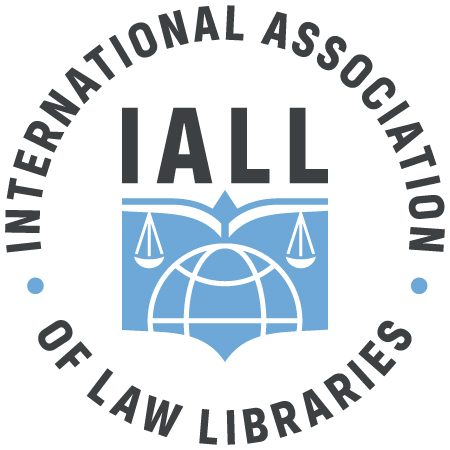IALL Board elections take place every three years following the procedures outlined in Article VII, Section 3 of the IALL Constitution. The purpose of the process is to elect Officers and Board members to perform the work of the Association. Officers and Board members serve for three year terms following each election cycle.
Over the years we have found that there has been some confusion about the election process. The IALL Secretary described the process at the Annual General Meeting (AGM) during the 31st Annual Course in Toronto. This short piece is a continuation of our ongoing effort to make the election process clearer and more transparent.
The IALL Board comprises:
- 5 elected Officers: President, First Vice President, Second Vice President, Secretary, Treasurer
- 8 Board members (5 elected, 3 appointed by the outgoing Board of Directors)
- 2 appointed ex-officio members: Editor of the International Journal of Legal Information (IJLI) and the Director of Communications. Ex-officio members participate in all work and discussions of the Board but are non-voting members.
- Immediate Past President of IALL
This means that there are three ways a person may become a member of IALL’s Board of Directors:
- By election: all Officers and five of the eight regular Board members
- By appointment: three of the eight regular Board members and two ex-officio members (Editor of IJLI and Director of Communications)
- The Immediate Past President remains on the Board for three years following her elected term of office as IALL President.
There are important requirements for becoming an IALL Officer or member of the Board; these should be seriously considered by anyone seeking to serve on the Board:
- You must be a dues paying regular member of IALL;
- You must be able to attend every IALL Conference during your term of office as well as the Pre and Post Conference Board meetings held in conjunction with each annual conference;
- You must be able to fund all costs associated with your attendance at the conferences and Board meetings, including conference registration, hotel accommodations, transportation and meals, these are not subsidised by the Association (except for three nights of standard hotel accommodation for attendance at Board meetings before and after the conference);
- You must be able to devote a considerable amount of time throughout the year to the work of the Association and Board, including but not limited to the specific work apportioned to each Officer and regular or ex-officio Board member. Note that the President of IALL must also commit to travelling to venues throughout the world on behalf of the Association throughout the year.
There are two ways in which a regular IALL member may get a place on the ballot for the IALL election:
- Nomination by the Nominating Committee; and
- Nomination by petition
Nomination by the Nominating Committee: The election process begins with the appointment of a nominating committee by the IALL President; this is done by October 31st of the year preceding an election year.
The next election year is 2013, and IALL President Petal Kinder has already appointed the Nominating Committee for the 2013 election. The Chair of the 2013 election Nominating Committee is Jules Winterton, as announced during the AGM in Toronto in September 2012.
The function of the Nominating Committee is to ensure that there is at least one candidate for each elected position, that is, one candidate nominated for each Officer position and one for each of the five elected regular Board members. The Committee does its work by polling IALL members for proposed candidates. The Committee then considers all of the names submitted and confirms that any proposed candidates are able to serve. The Nominating Committee must submit its list of candidates to the IALL Secretary by February 1st of the election year, in this case, by February 1, 2013. As previously noted, the list of candidates put forth by the Nominating Committee consists of one candidate for each elected position.
Nomination by Petition: Once the Nomination Committee’s list of candidates is submitted to the IALL Secretary, a notice of the proposed list of candidates is provided to all IALL members for at least 60 days. During this 60 day period, IALL members not selected by the Nominating Committee may get a place on the ballot by petition signed by ten or more regular IALL members; nominations by petition must be submitted to the Secretary by April 1st of the election year. This means that for the 2013 election, nominations by petition must be received by the IALL Secretary by April 1, 2013.
Once the Secretary has a complete slate of candidates, unless there is only one candidate for each position, the Secretary conducts the election by written ballot. If there is only one candidate for each position, these candidates are elected unopposed without need for a ballot. The election must be completed no later than July 1st of the election year, in this case July 1, 2013.
Newly elected Officers and Board members begin their terms of office at the end of the annual conference held during the election year. This means that the newly elected Board will begin their terms at the end of the AGM during the 2013 annual conference in Barcelona, Spain. Newly elected Officers and Board members must attend the post-Conference Board meeting and are strongly encouraged to attend the pre-conference meeting as observers.
